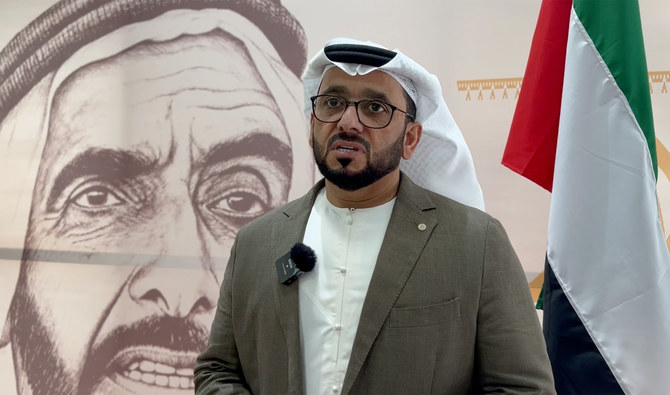KARACHI: The United Arab Emirates (UAE) was focusing on Pakistan’s agriculture, ports and logistics, power and other sectors under the recently signed multi-billion-dollar investment agreements with the South Asian country, the Emirati consul-general in Karachi said on Friday.
Pakistan and the UAE signed the multi-billion-dollar memorandums of understanding (MoUs) during Prime Minister Anwaar-ul-Haq Kakar’s visit to the Gulf nation this week. Under the agreements, the UAE is expected to invest up to $25 billion across diverse sectors in Pakistan.
“Couple of days ago, Pakistan has signed number of agreements with UAE of $20-25 billion. That is good investment,” Consul-General Dr. Bakheet Ateeq Al-Remeithi said at a press conference at the UAE Consulate in Karachi.
“[The] UAE always investing in Pakistan and standing beside Pakistan in a lot of sectors in agriculture sector, in port and logistics sector, also in power sector, in free zones to link all these things together to have more bright export and re-export.”
The Emirati envoy said this investment was mutually beneficial for both nations and the next year would be brighter with regard to inflows that had already started coming into Pakistan.
“More than this (investment) has also to come because many investors from the UAE’s private sector, apart from the government, also want to invest in Pakistan, particularly in food security, health and education sectors,” he said.
He appreciated the formation and the “proactive role” of the Special Investment Facilitation Council (SIFC) — a Pakistani civil-military hybrid forum established in June this year — in fast-tracking the decision-making process and promoting investment from foreign nations, particularly Gulf countries.
“The forum is very fast and effective,” the envoy said, adding he had personally dealt with the forum and things had materialized within days.
Under the investment coming from the UAE, according to the consul-general, an export hub will be established in Karachi and logistic support will be provided to remote areas of Pakistan’s southwestern Balochistan and southern Sindh provinces.
“The investment of the UAE in Pakistan is a part of relationship and to be together in the business that is to make in the environment and places and to have a short list for the logistics from all areas like and Balochistan and Sindh,” he said.
Pakistan and the UAE are close allies. The Gulf nation is Pakistan’s third-largest trade partner after China and the United States. It is also viewed as an ideal export destination by policymakers in the South Asian country due to its geographical proximity with Pakistan.
The UAE is also home to an estimated 1.8 million Pakistani expatriates and, after Saudi Arabia, is the second-largest source of remittances for the South Asian nation of more than 240 million.
The Pakistan PM, during an ambitious visit to the Gulf region this week, oversaw the signing of the MoUs between Pakistan and the UAE on energy, port operation projects, waste water treatment, food security, logistics, minerals, and banking and financial services sectors.
“These MoUs will unlock multi-billion dollars of investment from United Arab Emirates into Pakistan and will help realize various initiatives envisioned under [Pakistan’s] Special Investment Facilitation Council,” the Pakistani foreign office said at the time.
PM Kakar’s UAE visit was followed by his stopover in Kuwait, during which the two countries signed 10 deals worth several billion dollars.












